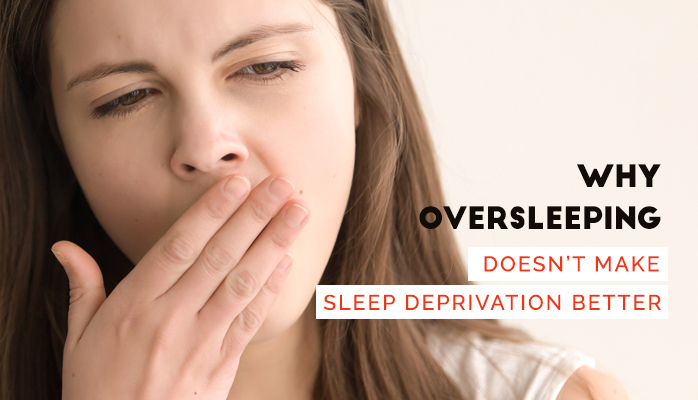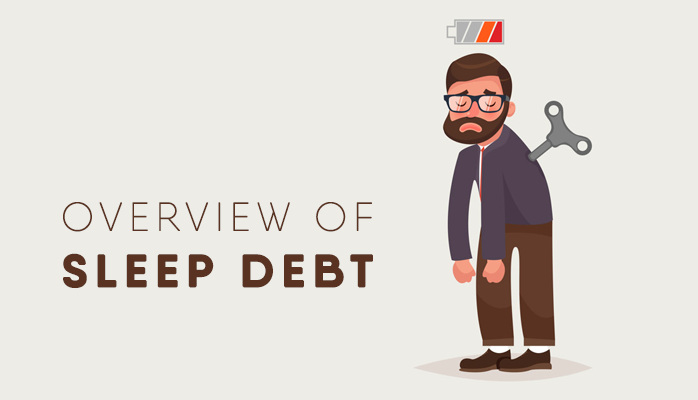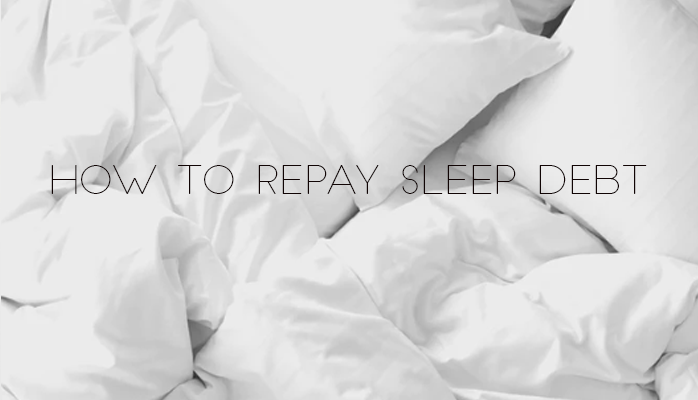Pulling an all-nighter can leave you feeling drained, sluggish, and unfocused the next day. Whether you stayed up studying, working, or socializing, your body and mind will need time to recover. While you can’t completely undo the effects of sleep deprivation, there are effective strategies to help restore your energy and cognitive function. Here’s how to bounce back from an all-nighter.
The Art of Sleeping In on Your Well-Deserved Off Days
Few things are as delicious as the idea of a lazy morning, especially when you've earned a day off from your regular routine. Sleeping in on your off days can be a well-deserved luxury, allowing you to relax and recharge your body and mind. In this blog post, we'll explore the benefits of catching some extra Zzz's on your off days and provide tips for making the most of those blissful sleep-ins.
If you have a tough week where you aren't getting enough sleep, you may find yourself adding to your ever-growing sleep debt. A sleep debt is the amount of hours of sleep that you are NOT getting. Sleep is so essential to our wellbeing and overall function that you take away vital hours when you aren't getting the recommended 7-9 hours a day.
It's really hard to repay sleep debts; in fact, it may be impossible, as we are adding to it much more than we are contributing to it. Therefore, avoidance may be your best option. Here are some ways to avoid a sleep debt.
Sleep Debt Growing This Alaskan Summer? What to Do
What is a Sleep Debt?
You’ve probably heard of the term “sleep debt.” It’s the term that refers how much less sleep you are getting than what you should be getting. The idea is that over time, a “sleep debt” forms that you need to get extra sleep to “pay back” your debt. To list it more succinctly:
- Your body requires a certain about of sleep, which is different depending on your age
- As you get less sleep than required, you become sleep deprived
- This sleep deprivation causes a “debt” which you have to “pay” by sleeping more than the required amount
For example, if you should be sleeping 7 hours per night, and the last three nights you have slept 6 hours each night, then your “sleep debt” would be 3 hours. It’s important to understand sleep debts because they are more complex and nuanced than the above bullet points.
Even the term “sleep debt” is a bit misleading because you can’t “repay” a sleep debt like you repay a loan. Namely, you can’t just get a bunch of sleep one night and repay your sleep debt. It doesn’t work this way.
Why Oversleeping Doesn’t Make Sleep Deprivation Better
What is Oversleeping, or Binge Sleeping?
Binge sleeping, a common escape route for those suffering from sleep deprivation, offers the illusion of a quick fix to feeling normal again. Picture this: you spend the entire week burning the midnight oil on your computer, only to wake up at your usual time for work, barely getting 6 hours of sleep. Then, the weekend arrives and you indulge in a few extra hours of shut-eye each day, maybe even sneaking in a nap or two. This is the essence of binge sleeping, but here's the truth - it doesn't actually work.
The concept of binge sleeping originates from the idea of having a "sleep debt," which plays a crucial role in discussions about sleep deprivation and sleep binging.
Consider this: on an average, Americans sleep for around 6.8 hours per night during the week, but that number jumps to 7.4 hours during the weekend (about 40 minutes more). These figures indicate that a significant portion of the population engages in binge sleeping, seeking to catch up on lost sleep.
Unfortunately, binge sleep doesn't eliminate your sleep debt. It may provide temporary relief, but the signs of sleep deprivation quickly resurface.
Why are Sleep Debts Common in Alaska?
Sleep debts are a term that refers to the accumulated sleep deprivation that you experience. It's not as simple as just getting a certain amount of sleep per night and catching up on the missed hours. The concept of sleep debt is useful but can be misleading. It highlights the consequences of not getting enough sleep, namely sleep deprivation, and the need to adjust your sleep patterns to restore a well-rested state. However, repaying your sleep debt is not like repaying a loan.
In Alaska, sleep debts are more common due to the extreme conditions we experience. The long hours of daylight in summer and extended periods of darkness in winter, along with potential lifestyle changes in each season, put us at higher risk for developing sleep disorders or exacerbating existing ones, leading to sleep deprivation. These disorders can include insomnia, restless leg syndrome, parasomnias, and circadian rhythm disorders.
Understanding how to properly repay your sleep debt is crucial, as is recognizing the causes and effects of sleep deprivation. By knowing the recommended amount of sleep you need based on your age and individual needs, you can establish healthy sleep patterns and gradually eliminate the effects of sleep debt. It's important to avoid the misconception that oversleeping can compensate for sleep debt. Instead, focus on consistent, restful sleep over time.
In Alaska, there are specific considerations in different seasons to promote good sleep habits and repay sleep debt effectively. For example, using blackout curtains in summer, being mindful of shift work sleep disorder during shift work, utilizing white noise machines to drown out increased traffic noise, and incorporating light therapy and exercise in winter can all contribute to better sleep.
Recognizing the symptoms of sleep deprivation is also crucial. From decreased performance in various aspects of life to chronic fatigue, sleep attacks, morning headaches, sexual dysfunction, memory and concentration issues, anxiety, depression, and medical complications, the consequences of sleep deprivation are far-reaching.
If you're dealing with chronic sleep problems or sleep deprivation in Alaska, reach out to one of our sleep specialists for assistance. Start by taking our free online sleep test to gain further insight into your sleep patterns and needs.
What is Sleep Debt?
If you've ever heard of sleep debt, it’s the term that refers to how much less sleep you are getting than what you should be getting. The idea is that over time, a “sleep debt” forms that you need to get extra sleep to “pay back” your debt. In other words:
- Your body requires a certain about of sleep, which is different depending on your age
- As you get less sleep than required, you become sleep deprived
- This sleep deprivation causes a “debt” which you have to “pay” by sleeping more than the required amount
For example, if you should be sleeping 7 hours per night, and the last three nights you have slept 6 hours each night, then your “sleep debt” would be 3 hours. It’s important to understand sleep debts because they are more complex and nuanced than the above bullet points.
Even the term “sleep debt” is a bit misleading because you can’t “repay” a sleep debt like you repay a loan. Namely, you can’t just get a bunch of sleep one night and repay your sleep debt. It doesn’t work this way.
What is Sleep Debt?
A “sleep debt” is a common term that refers to the amount of sleep you get that is less than the amount of sleep you need. The way we generally understand it is that over time, a “debt” forms where you need to “catch up” on sleep to be healthy again.
To put it a different way:
- Your body requires a certain about of sleep, which is different depending on your age
- As you get less sleep than required, you become sleep deprived
- This sleep deprivation causes a “debt” which you have to “pay” by sleeping more than the required amount
Sleep debts are extremely important to correctly understand, because there are common misconception about what a sleep debt is and how you “repay” it. Most people are under the false assumption that they can “repay” their sleep debt much like you repay any monetary debt: in large sums. Unfortunately, it doesn’t work this way.








